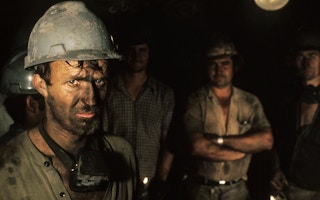In January 2019, a tailings dam from an iron ore mine burst near the southeast Brazilian town of Brumadinho, unleashing a deadly avalanche of muddy waste that killed an estimated 270 people.
The anniversary of the disaster - Jan. 25 - is a painful day for Angelica Amanda Andrade, whose sister Natalia died aged 32.
“My life changed completely four years ago,” said Andrade, 28, a teacher who is campaigning for safer mining practices on behalf of her community.
She is calling for compensation for the victims’ families from the company that owned the dam, Vale SA - where her sister was working - as well as greater transparency and criminal convictions against the individuals responsible.
In July 2019, a court in Minas Gerais state convicted the company for the damages caused. Two months later, the state’s parliamentary commission found that Vale was aware of the risks of the structure breaking yet continued operating and failed to adopt measures that could have prevented the tragedy.
“When I learned about that, I was so appalled and disgusted that there were people who could make that choice,” Andrade said in an interview this week at the London Stock Exchange where the new Global Investor Commission on Mining 2030 was launched.
Chaired by the Church of England Pensions Board - which invests in mining companies - and advised by the United Nations Environment Programme (UNEP), the investor-led initiative aims to make the mining sector more sustainable through this decade.
“
Mining is a hole that is pierced within a community. If you go for green energy, and you come and take the minerals from there and make yourselves cleaner and we are still filthy, you’re creating an unjust system.
Thabo Makgoba, archbishop, Cape Town
The commission hopes to achieve wide-ranging reform in the industry so that it causes no harm to people and the environment, aligning investors and companies behind best practices to handle risks like social conflicts and nature loss.
As well as high-profile disasters and the displacement of communities, the mining sector has been responsible for widespread damage to nature and biodiversity worldwide, such as to forests which absorb planet-heating carbon dioxide emissions.
Yet the sector is seen as crucial to a global green transition, which requires minerals and metals - from copper and cobalt for clean energy technologies to lithium for batteries that power electric vehicles.
The production of minerals would need to increase by nearly 500 per cent by 2050 to satisfy demand for clean technologies to meet the climate goals of the Paris Agreement, according to a 2020 World Bank analysis.








